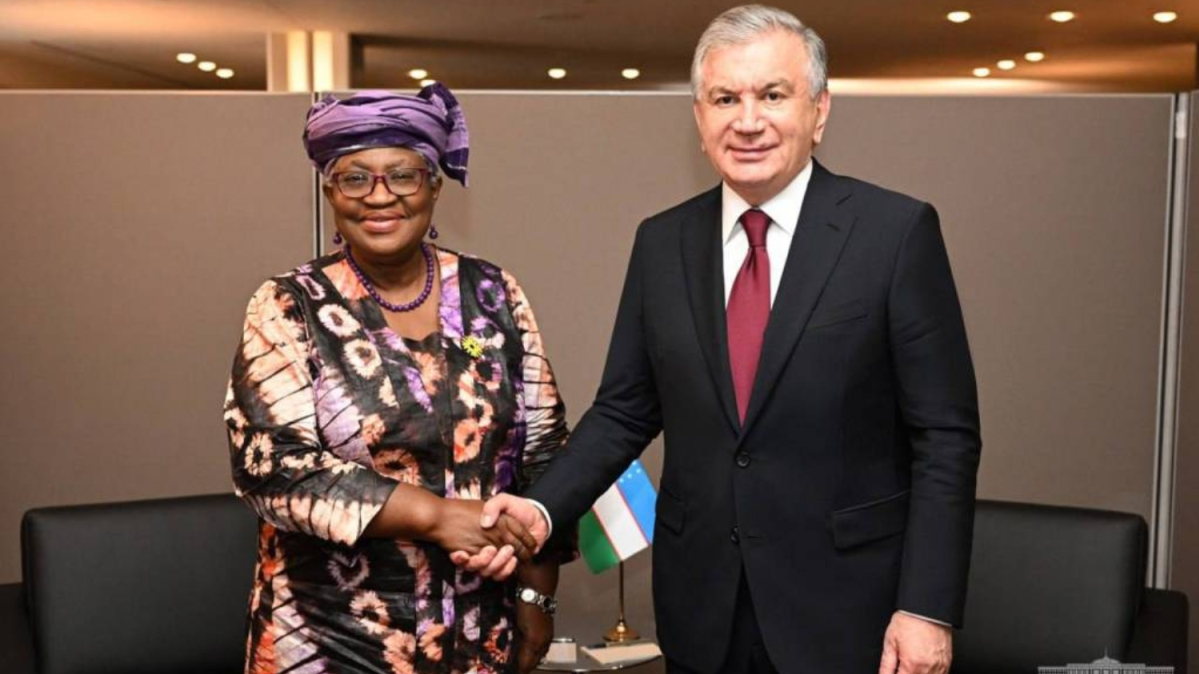Geneva talks: Outlook on U.S.–Iran nuclear negotiations and Russia–Ukraine peace efforts
Geneva is set to host two sets of negotiations on Tuesday, with U.S. officials meeting Iranian representatives in the morning and a trilateral session...

The Ministry of Energy of Uzbekistan announced a nationwide energy-efficiency programme designed to reduce consumption, modernise standards and meet key obligations under the country’s accession to the World Trade Organization (WTO).
According to the ministry, the reforms introduce 166 international standards across the construction and industrial sectors, with the share of energy-efficient and environmentally friendly materials expected to reach 25% by 2026 and 35% by 2030.
This includes standards for insulation, heating systems, lighting, industrial equipment and building-material production.
Energy audits conducted at 34 major enterprises have already helped reduce fuel waste, and the introduction of digital monitoring systems and artificial-intelligence tools is projected to reduce industrial production costs by 5–10%.
To strengthen product quality and safety in line with the new standards, 4 scientific projects are being implemented jointly with the Tashkent Chemical-Technological Institute, involving researchers from Germany, Korea and Türkiye.
These projects focus on upgrading production technology and developing new energy-efficient construction materials.
Beginning in 2026, the government will allocate 30 billion UZS (approximately $2.52 million) to support laboratory testing, certification systems and pilot production lines in the building-materials sector.
The first stage of implementation beginning in 2026 will include:
- conversion to LED lighting in all public institutions.
- expanded installation of smart meters in households and businesses.
- mandatory energy passports for buildings larger than 200 m².
- higher construction-efficiency standards aligned with international best practices.
- digitalisation of energy-management systems.
A nationwide public-awareness campaign on efficient energy use will also launch next year. To support these reforms, the government has allocated 100 billion UZS (around $8.39 million) for digitalisation and efficiency upgrades across priority sectors.
For reference, Uzbekistan began its WTO accession process on 21 December 1994, when its Working Party was formally established.
Officials emphasise that the current energy-efficiency programme is closely tied to the requirements of this long-running accession effort.
The Ministry states that the reforms will help modernise energy management, reduce system losses and increase the competitiveness of Uzbek goods in foreign markets.
U.S. Ambassador to NATO Matthew Whitaker said China has the power to bring an end to Russia’s war in Ukraine, arguing that Beijing is enabling Moscow’s military campaign.
Austria’s Janine Flock won the gold medal in the women’s skeleton event at the Milano-Cortina 2026 Winter Olympics on Saturday.
Iran’s Supreme National Security Council Secretary Ali Larijani said the United States could evaluate its own interests separately from those of Israel in ongoing negotiations between Tehran and Washington.
U.S. Secretary of State Marco Rubio on Sunday (15 February) called it “troubling” a report by five European allies blaming Russia for killing late Kremlin critic Alexei Navalny using a toxin from poison dart frogs.
Ukrainian President Volodymyr Zelenskyy said on Saturday that Russia’s decision to change the leadership of its delegation for upcoming peace talks in Geneva appeared to be an attempt to delay progress.
Ankara has condemned an Israeli plan to register large areas of the occupied West Bank as state property, a move widely criticised internationally and described by the UN and the International Court of Justice as inconsistent with international law governing occupied territories.
Kyrgyz President Sadyr Japarov has moved swiftly to consolidate his authority following the dismissal of his long-time ally Kamchybek Tashiev, head of the State Committee for National Security (SCNS).
Iran’s Foreign Minister Abbas Araghchi arrived in Geneva on Monday ahead of a second round of indirect nuclear talks with the United States, according to Iranian state media.
Azerbaijan and Serbia have formally launched a Strategic Partnership Council, marking a new phase in bilateral relations and placing cooperation under direct presidential oversight.
Iran’s Supreme National Security Council Secretary Ali Larijani said the United States could evaluate its own interests separately from those of Israel in ongoing negotiations between Tehran and Washington.
You can download the AnewZ application from Play Store and the App Store.

What is your opinion on this topic?
Leave the first comment